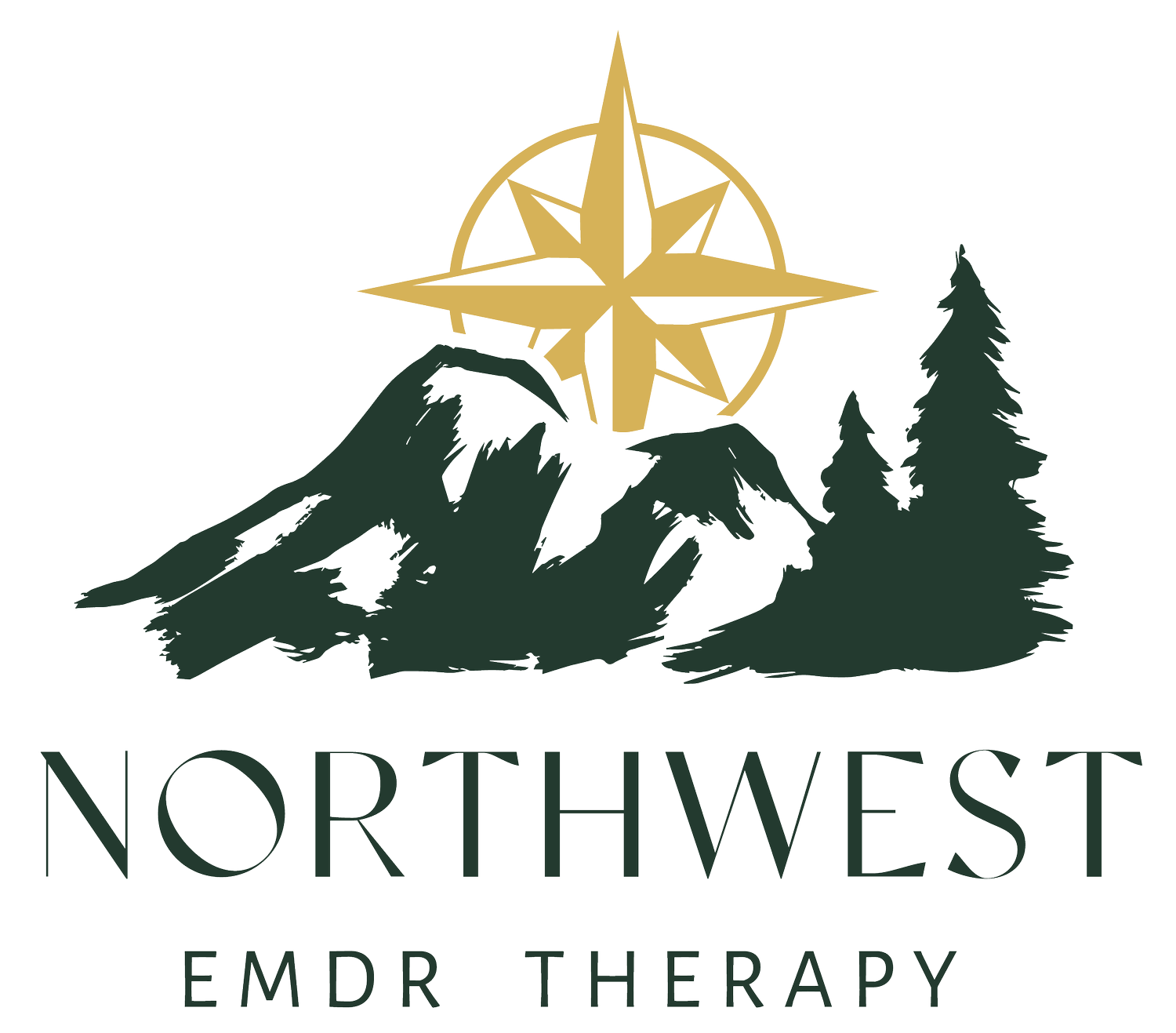Trauma Counseling
There are many different approaches to dealing with trauma. Our focus on EMDR has been helpful for many individuals who have experienced trauma – both recent traumas such as car accidents or natural disasters as well as those with long standing unresolved experiences such as childhood abuse or neglect.
It can also help reduce anxiety associated with everyday issues like public speaking or social phobia. Research has shown it to be highly effective in treating various types of mental health conditions including PTSD, CPTSD, military trauma, depression, phobias, panic disorder and obsessive compulsive disorder (OCD). It has also been found to occasionally reduce symptoms faster than traditional talk therapy alone which makes it appealing for those who want quick results from their therapeutic work.

What To Expect During EMDR Therapy?
EMDR therapy is a specific type of therapy that is used to treat symptoms of trauma. If you are seeking EMDR therapy for trauma, here’s what you can expect during a typical session:
Preparation: Your therapist will discuss your history of trauma, and will provide you with some grounding techniques to use during the therapy session.
Assessment of the traumatic memory: Your therapist will assess the traumatic memory you want to work on, and will help you identify any negative beliefs you have about yourself related to the memory.
Bilateral stimulation: Your therapist will use bilateral stimulation, such as eye movements, tapping, or sounds, to help you process the traumatic memory. You will be asked to hold the memory in your mind while focusing on the stimulation.
Processing the traumatic memory: Your therapist will help you process the traumatic memory by encouraging you to talk about any emotions, images, or physical sensations that come up during the bilateral stimulation.
Integration of the processed memory: Your therapist will help you integrate the processed memory by helping you identify any new positive beliefs you have about yourself and practicing the new beliefs in the therapy session.
Follow-up: Your therapist will discuss any homework or follow-up care that may be necessary after the therapy session, and will encourage you to continue using the grounding techniques you learned in session.
EMDR therapy for trauma can be a powerful tool for reducing symptoms such as anxiety, depression, PTSD, and CPTSD, and for resolving traumatic memories. It’s important to have open and honest communication with your therapist to ensure that the therapy is tailored to your individual needs and goals.



How does Trauma Counseling Help?
Therapy can be an effective way to help individuals process and heal from trauma. Trauma can refer to any experience that is deeply distressing or disturbing, such as physical or sexual abuse, a natural disaster, a serious accident, military trauma, or a sudden loss.
Here are some ways therapy can help with trauma:
- Providing a safe space to process emotions: Therapy offers a non-judgmental and confidential environment where individuals can express their emotions and experiences related to the trauma without fear of being shamed or blamed.
- Helping to manage symptoms: Trauma can often cause symptoms such as flashbacks, nightmares, anxiety, and depression. Therapy can provide coping strategies and tools to manage these symptoms.
- Identifying and challenging negative beliefs: Trauma can cause individuals to develop negative beliefs about themselves, the world, and others. These beliefs can be challenged and replaced with more positive and realistic ones through therapy.
- Addressing avoidance behaviors: Trauma can cause individuals to avoid certain people, places, or activities that trigger memories of the traumatic event. Therapy can help individuals gradually face and overcome these avoidance behaviors.
- Promoting self-care and self-compassion: Trauma can often lead to feelings of shame, guilt, and self-blame. Therapy can help individuals learn to practice self-care and self-compassion, which can be essential in the healing process.
There are various types of therapy that can be helpful for trauma, such as cognitive-behavioral therapy (CBT), eye movement desensitization and reprocessing (EMDR), and mindfulness-based therapies. It is important to find a therapist who has experience working with trauma and who you feel comfortable with.

Is EMDR Therapy Effective For Treating Trauma?
Yes, EMDR therapy has been shown to be effective in reducing symptoms of trauma such as anxiety, depression, and PTSD. It has been found to be faster and more effective than other forms of therapy for treating trauma.
What can I expect during an EMDR therapy session?
During an EMDR therapy session, you will work with your therapist to process the traumatic memory. The therapist will help you identify any negative beliefs you have about yourself related to the memory, and will use bilateral stimulation to help you process the memory. You will be encouraged to talk about any emotions, images, or physical sensations that come up during the stimulation, and the therapist will help you integrate the processed memory.
How Many Sessions Will I Need?
The number of sessions you need will vary depending on the severity and complexity of your trauma, as well as your individual needs and goals. Your therapist will be able to provide you with a more specific estimate after conducting an assessment and getting to know you.
Is EMDR Therapy Safe?
Yes, EMDR therapy is considered safe when conducted by a trained and licensed therapist. Your therapist will provide you with grounding techniques to use during the therapy session, and will encourage you to discuss any concerns or questions you have throughout the therapy process.
Can EMDR Therapy Help Improve My Overall Well-Being?
By resolving traumatic memories and reducing symptoms of trauma, EMDR therapy can help improve your overall well-being. You can experience greater self-esteem, improved relationships, and a more positive outlook on life.
